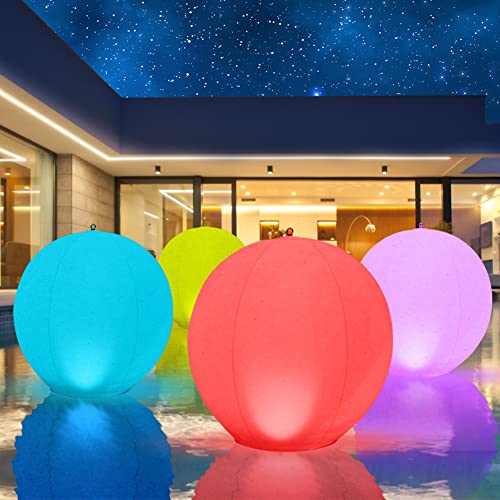The Ultimate Guide to Rain Barrels for Patio: Maximize Your Outdoor Space with Eco-Friendly Water Solutions
Rain barrels for patios are a valuable addition to any outdoor space, allowing you to collect and store rainwater for various uses. Credit: www.amazon.com Why Choose Rain Barrels For Patio Discover the ultimate guide to rain barrels for your patio. Make an eco-friendly choice and conserve water with our comprehensive tips and insights. Create a sustainable outdoor space that benefits both you and the environment. Benefits Of Using Rain Barrels For Patio: Using rain barrels for your patio comes with numerous benefits that not only help you conserve water but also contribute to a sustainable environment. Let’s explore the advantages of incorporating rain barrels into your outdoor space: Using rain barrels for your patio brings numerous benefits, including water conservation, sustainability, financial savings, eco-friendly landscaping, and reducing stormwater runoff. Incorporating these eco-friendly water solutions into your outdoor space not only helps you make a positive impact on the environment but also creates a more efficient and enjoyable patio experience. How Rain Barrels Work Discover the inner workings of rain barrels and how they can enhance your patio space. This ultimate guide provides valuable insights and tips for maximizing the benefits of rain barrels in a simple and effective manner. Understanding The Rainwater Collection Process Rain barrels are an effective way to capture and store rainwater for various household uses. By understanding the rainwater collection process, you can better appreciate the benefits and functionality of rain barrels. Here’s how they work: Components Of A Rain Barrel System A rain barrel system consists of several key components that work together to efficiently collect and store rainwater. These components include: Importance Of Proper Installation And Maintenance Proper installation and maintenance are crucial for the optimal performance and longevity of a rain barrel system. Follow these guidelines to ensure your rain barrel functions effectively: By understanding how rain barrels work and ensuring proper installation and maintenance, you can make the most of this eco-friendly solution for collecting and utilizing rainwater on your patio. Selecting The Right Rain Barrel For Your Patio Discover the ultimate guide to selecting the perfect rain barrel for your patio. Find the right one that suits your needs and complements your outdoor space. Achieve sustainability and water conservation with the right rain barrel choice. When it comes to selecting the right rain barrel for your patio, there are a few key considerations to keep in mind. From size and capacity to material options and durability, picking the perfect rain barrel can make a significant difference in rainwater collection efficiency. To help you make an informed decision, we’ve compiled a guide outlining the essential factors to consider. So, let’s dive in and explore the world of rain barrels. Size And Capacity Considerations: Material Options And Durability: Features To Look For In A Rain Barrel: Remember, selecting the right rain barrel for your patio involves considering factors like size, capacity, material options, durability, and essential features. By keeping these considerations in mind, you’ll be well on your way to successfully harvesting rainwater and enjoying the benefits of a sustainable and eco-friendly patio. Maximizing The Efficiency Of Your Rain Barrel Discover the ultimate guide to maximizing the efficiency of your rain barrel for patio. Learn valuable tips and techniques to optimize your rainwater collection system and make the most of every drop. Rain barrels are an excellent way to save water and reduce your environmental footprint. To ensure that your rain barrel is functioning optimally, consider the following strategies: Positioning Your Rain Barrel For Optimal Rainwater Collection Connecting Multiple Rain Barrels For Increased Storage Capacity Proper Maintenance To Ensure Peak Performance Remember, by positioning your rain barrel properly, connecting multiple barrels, and conducting regular maintenance, you can maximize the efficiency of your rainwater collection system and do your part in conserving water. Rain Barrel Accessories And Upgrades Upgrade your patio rain barrel with our top-notch accessories, including overflow kits, water level indicators, and mesh screens. Enhance your rainwater collection system with these essential upgrades for optimal performance and convenience. Whether you’re a seasoned gardener or just starting out with your patio garden, having the right rain barrel accessories and upgrades can enhance the efficiency and convenience of your rainwater harvesting system. From overflow systems and diverters to pumps and filtration options, there are several accessories available to optimize your rain barrel setup. Additionally, automated watering systems can take the guesswork out of watering your plants, ensuring they receive the right amount of moisture. In this section, we will explore these essential rain barrel accessories and upgrades in more detail. Overflow Systems And Diverters: Rain Barrel Pumps And Filtration Options: Automated Watering Systems For Your Patio Garden: With these rain barrel accessories and upgrades, you can make the most of your rainwater harvesting system, conserve water resources, and promote sustainable gardening practices. Explore the options that best suit your needs and take your patio garden to the next level of efficiency and convenience. Implementing Water Conservation Practices Discover the ultimate guide to rain barrels for your patio, providing a comprehensive resource on implementing water conservation practices. Learn how rain barrels can help save water and benefit the environment while enhancing your outdoor space. Rain barrels are an excellent addition to any patio for both environmental and cost-saving reasons. In this section, we will explore various ways to implement water conservation practices that will not only help you reduce your water usage but also contribute to a more sustainable outdoor space. Tips For Reducing Water Usage In Your Outdoor Space: Incorporating Sustainable Gardening Techniques: Using Rain Barrel Water Efficiently For Different Purposes: By following these water conservation practices, you can make your outdoor space more sustainable while also enjoying the benefits of rain barrel water. So go ahead, implement these techniques, and contribute to a greener and more eco-friendly patio. Diy Rain Barrel Installation Guide For Your Patio Discover the ultimate DIY rain barrel installation guide for your patio – a comprehensive resource that provides step-by-step instructions for setting up your own rainwater collection






